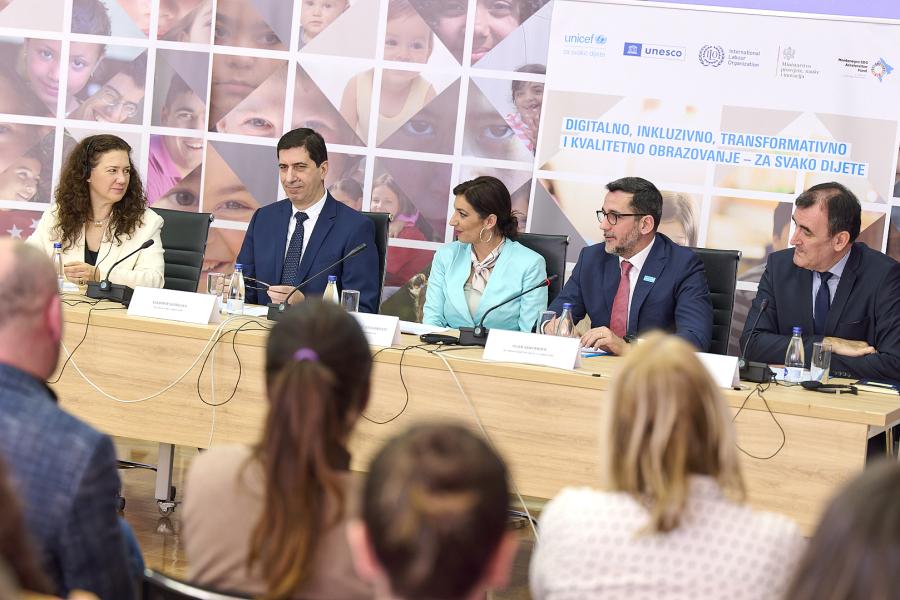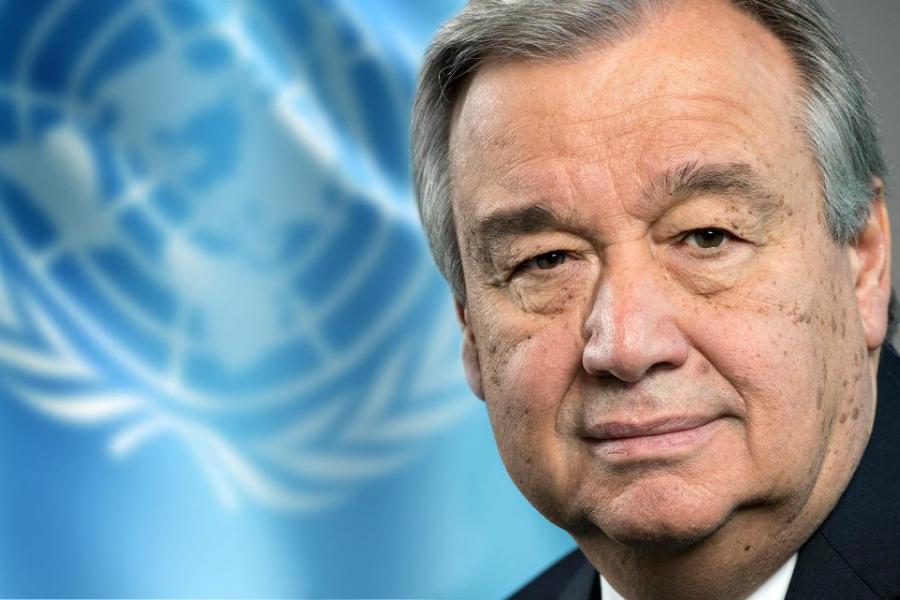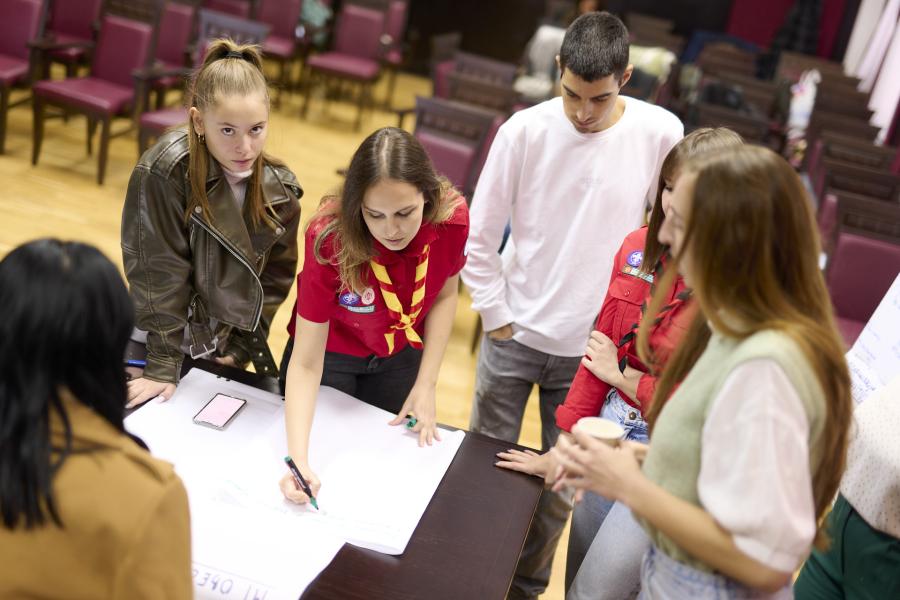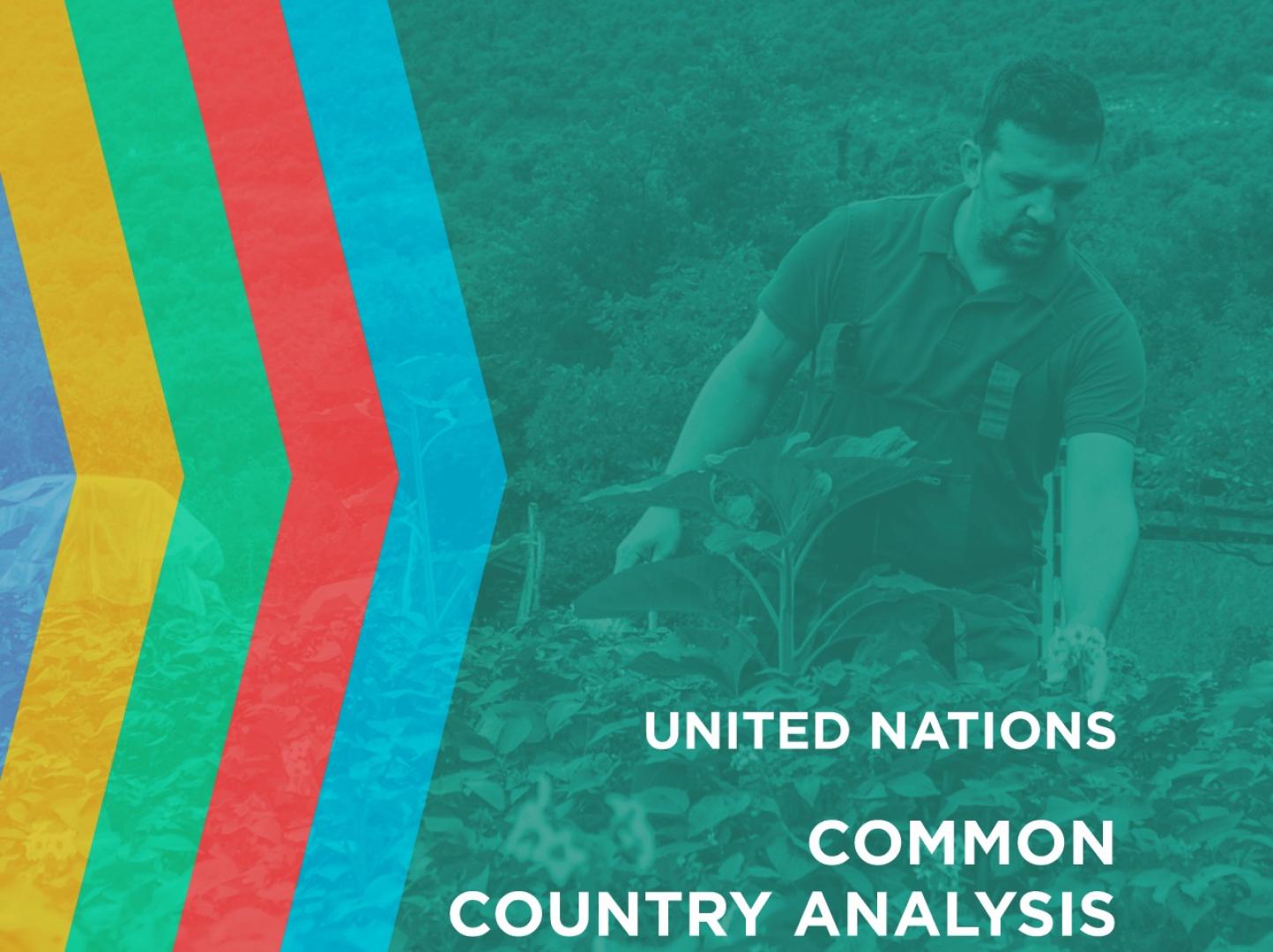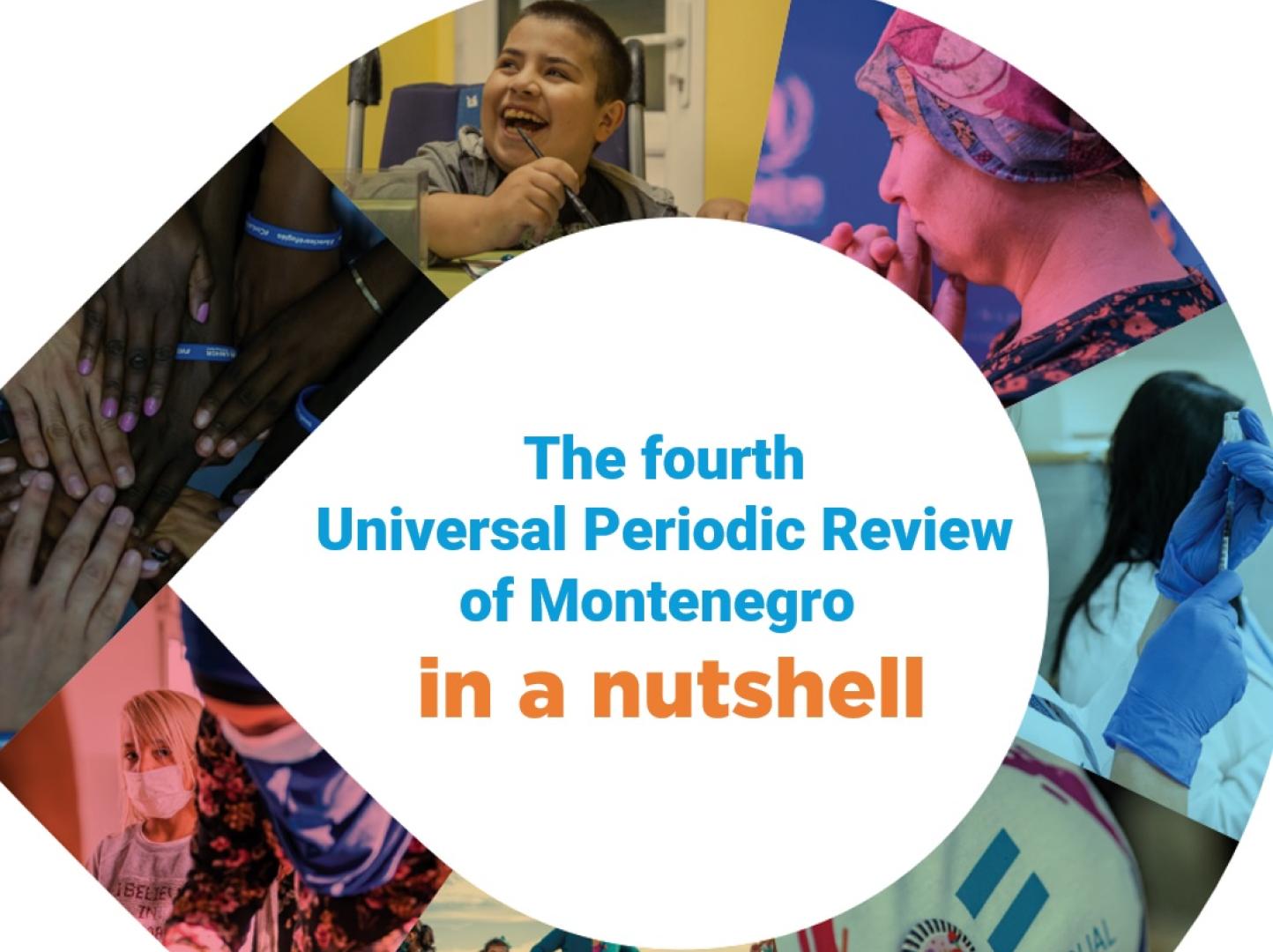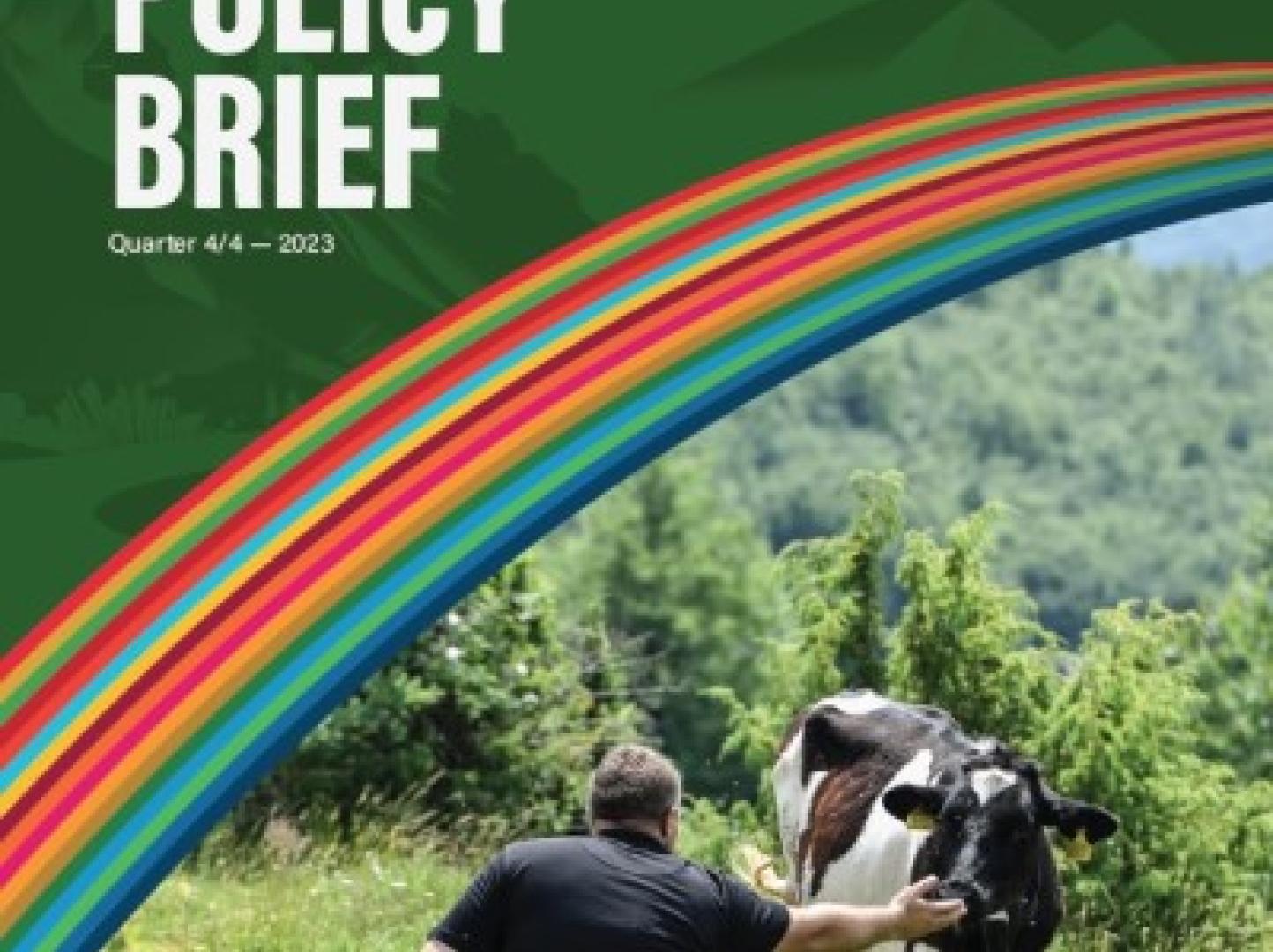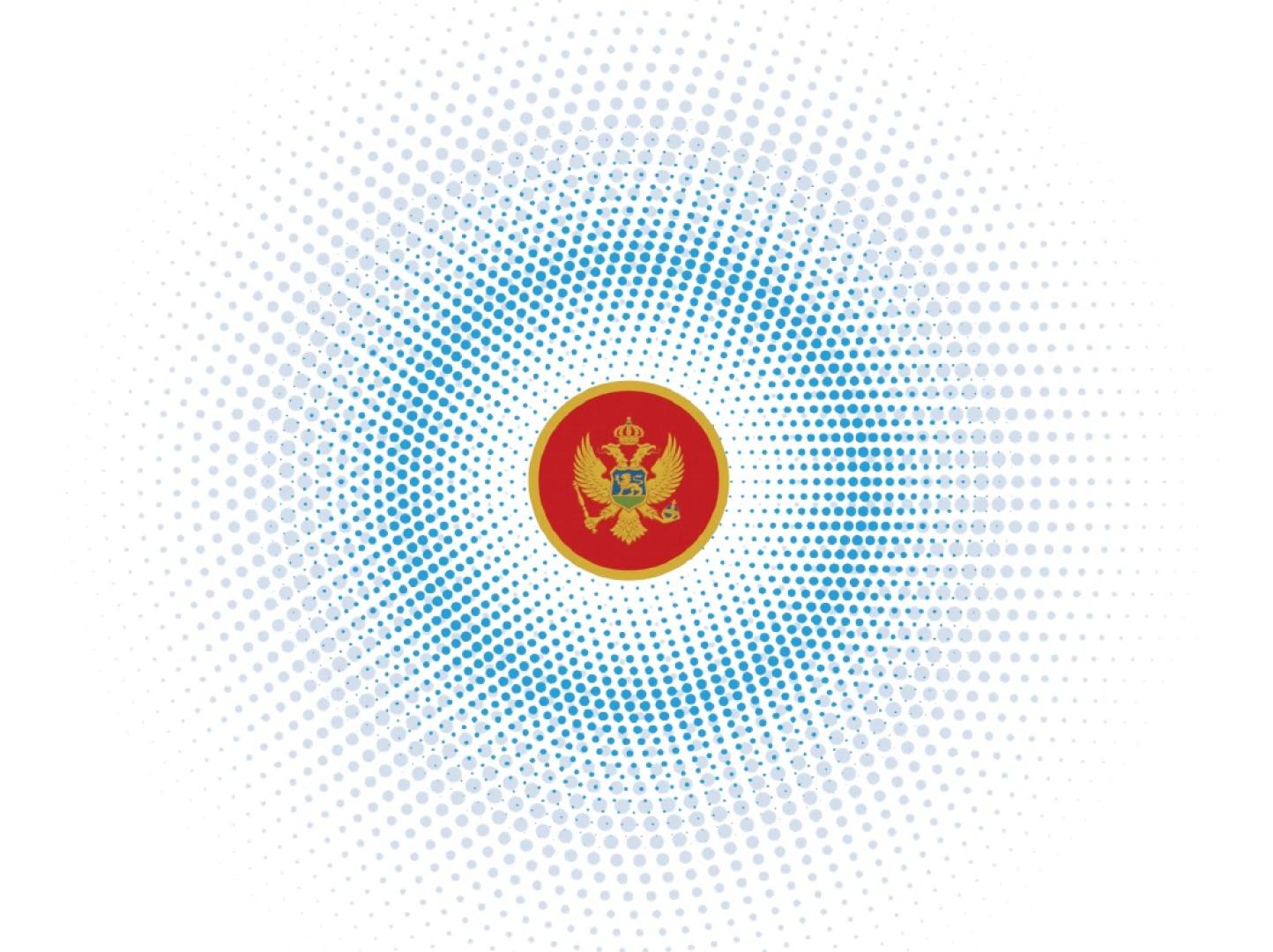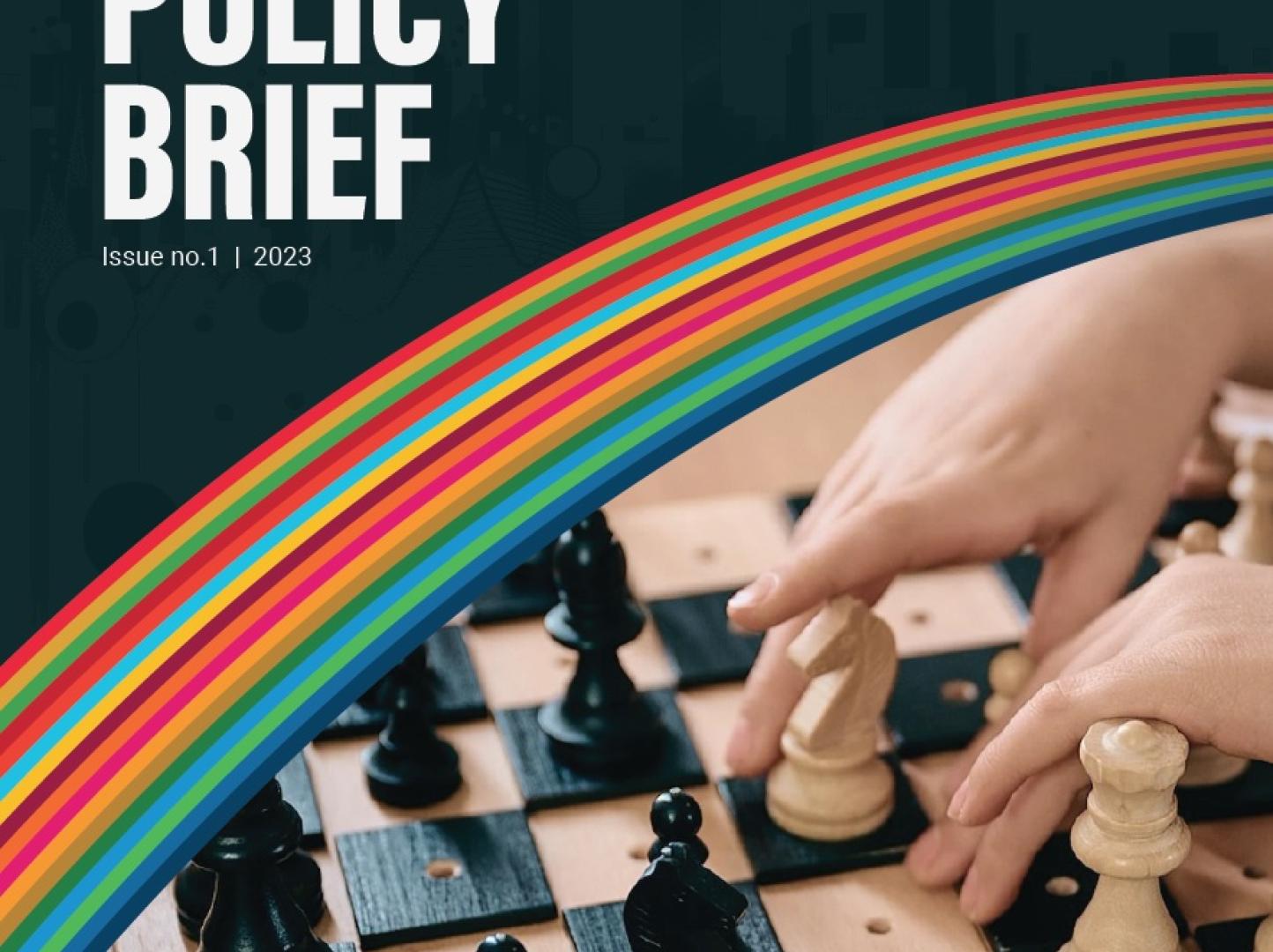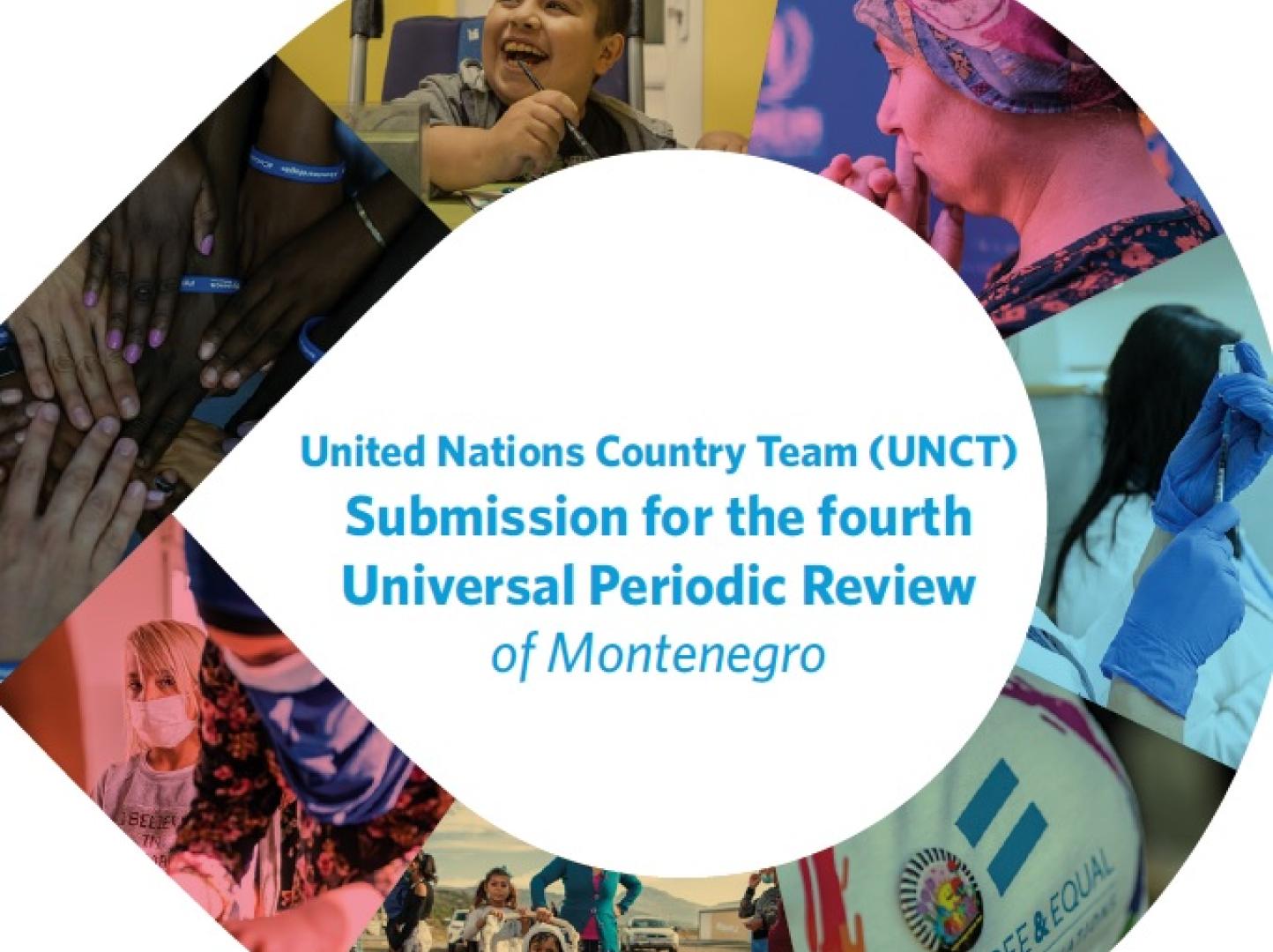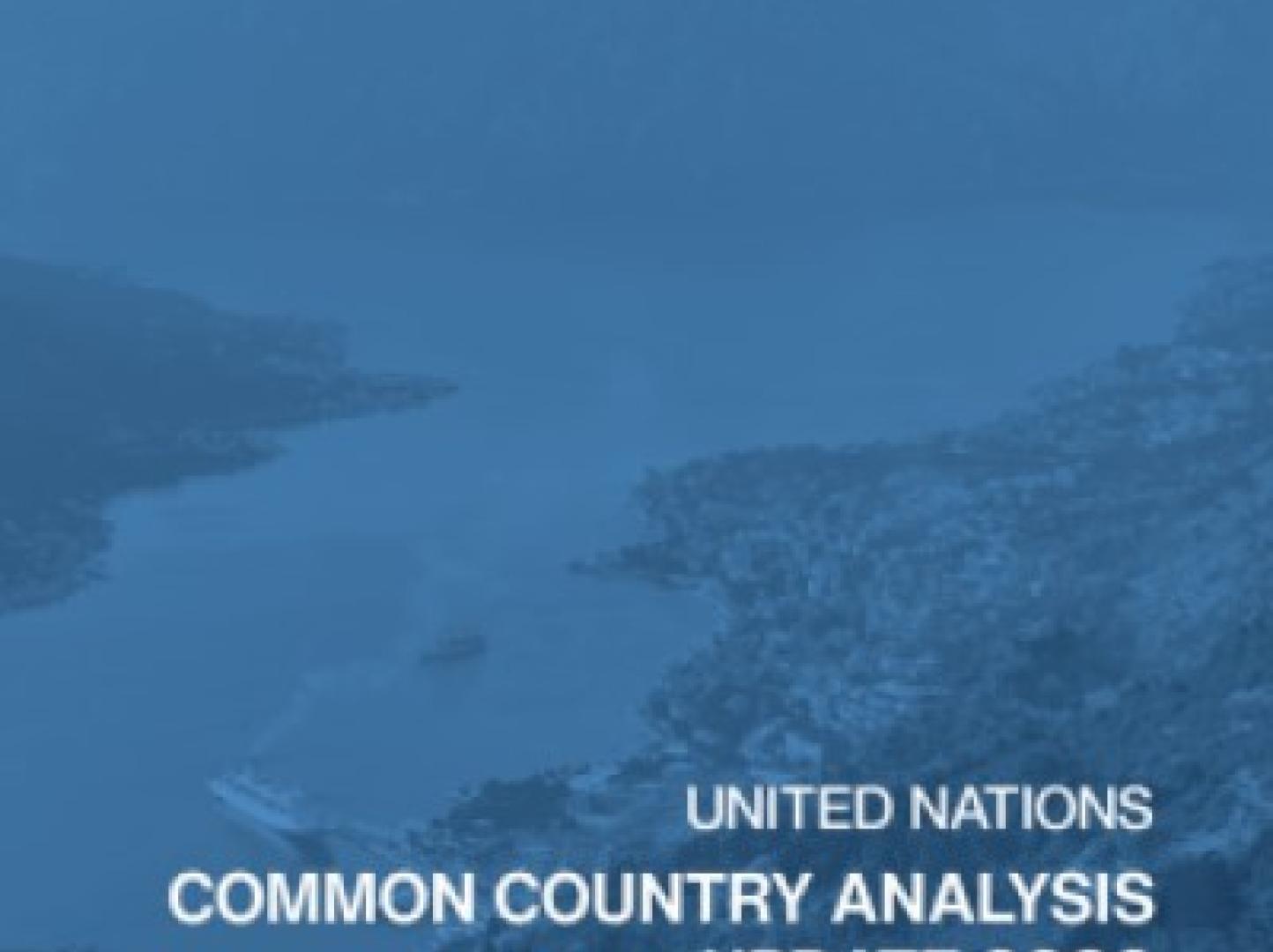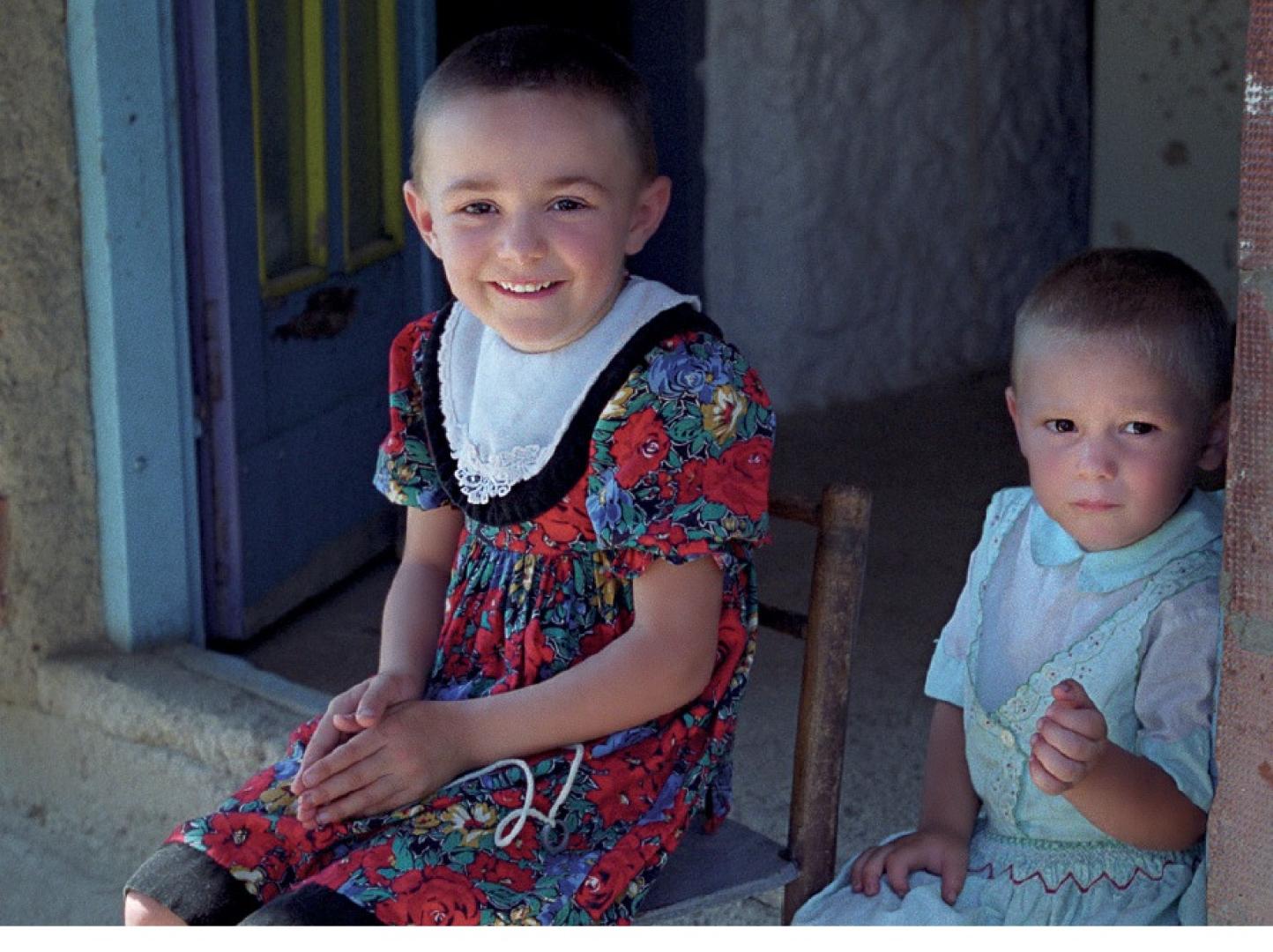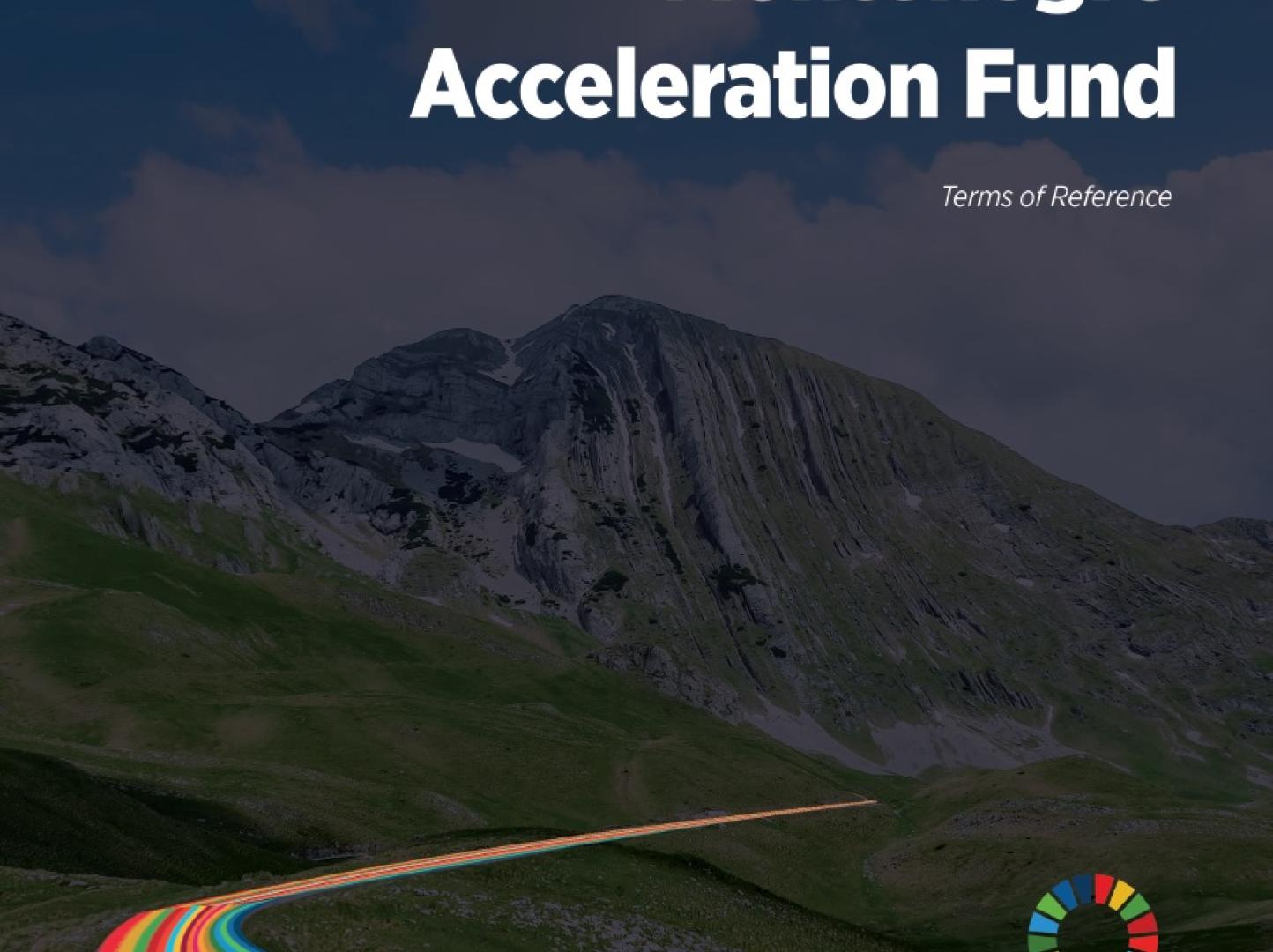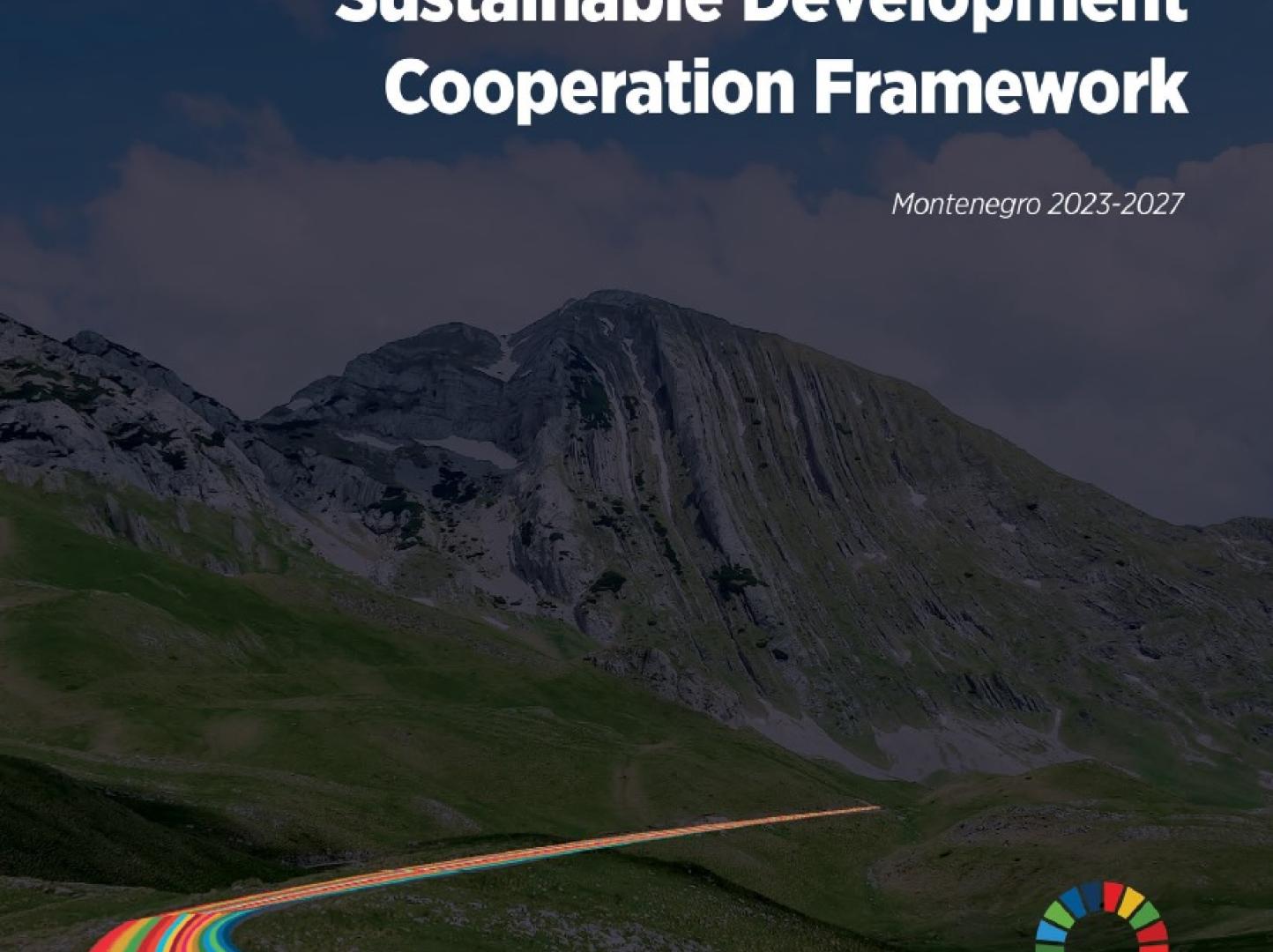Latest
Story
08 March 2024
Invest In Women: Accelerate Progress
Learn more
Story
08 March 2024
Joining forces for the 21st century schools
Learn more
Story
18 December 2023
The application of the Convention on the Prevention and Punishment of the Crime of Genocide must be a 'living force in world society'
Learn more
Latest
The Sustainable Development Goals in Montenegro
The Sustainable Development Goals are a global call to action to end poverty, protect the earth’s environment and climate, and ensure that people everywhere can enjoy peace and prosperity. These are the goals the UN is working on in Montenegro:
Story
28 November 2023
Latest: UN Montenegro Snapshots
Interested in the work of UN team on the ground?You're at the right place. Take a tour below through the review of monthly newsletters - UN Snapshots - where you can find major actions and results the UN team achieved together with partners in Montenegro. Latest... Highlights from UN's work in Montenegro in 2023 Highlights from UN's work in Montenegro in 2022 Highlights from UN's work in Montenegro in 2021
1 of 5
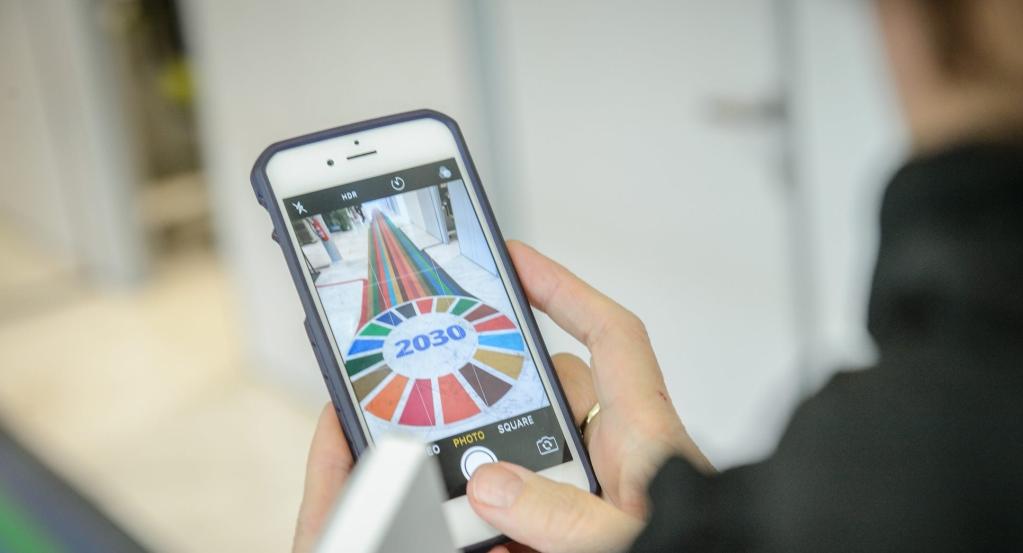
Story
23 October 2023
European Union and Austria signed a partnership within the Montenegro SDG Acceleration Fund
Podgorica, 23 October 2023.
High representatives of the Delegation of the European Union, Austria and the United Nations system in Montenegro, in the presence of the President and Prime Minister of Montenegro, signed an agreement on the allocation of funds to the Montenegro SDG Acceleration Fund. The Fund is a new generation financial tool established by the UN team in the country, which seeks to pool donor funds that will be directed towards development initiatives.
Click here to donate to Sustainable Development of Montenegro
The President of Montenegro, Jakov Milatović, said that the Fund is not only a financial mechanism, but a powerful means of influence adding that “today's gathering signifies the strength of Montenegro's partnership with the United Nations, the European Union and partner countries.”
"Our country has shown its commitment to achieving the Sustainable Development Goals by encouraging this initiative and supporting the implementation of the Strategic Framework of Cooperation agreed by the Government of Montenegro and the United Nations. We have also sent a clear signal that Montenegro is focused on development in strategic areas by making a significant contribution to the Fund and paving a way for other countries to do it." – said Milatović.
"With this initiative, we promote the values of the UN, but also generate new value for the citizens of Montenegro. This is the best indicator that a good and inclusive policy pays off and that Montenegro has friends all over the world. We owe a gratitude to the EU, which strongly supports us in this way as well. I invite other countries to join in doing things together, not only for the benefit of Montenegro, but also to send a message of peace and prosperity to everyone, because Montenegro, as an ecological country, is entitled to advocate the Sustainable Development Goals." - said the Prime Minister of Montenegro, Dritan Abazović.
The European Union allocated two million EUR for the Montenegro SDG Acceleration Fund, while Austria allocated EUR 1.5 million for this purpose.
The Ambassador of the European Union in Montenegro, Oana Kristina Popa, said that support to the Montenegro SDG Acceleration Fund is a new and innovative form of cooperation.
"We are establishing a unique framework that will allow us access to all 18 UN agencies working in Montenegro. Thus, we will make the best use of their expertise in supporting the necessary reforms and development efforts of Montenegro. Support to the Fund is part of the EU aid package called the Instrument for Reforms, which was created to support Montenegro in solving difficult and structural obstacles to growth, and will include other international organizations, such as the EBRD and the World Bank," said Popa.
"Austria is joining this partnership because of its’ unique setup, its transformative and innovative potential. As such, the Fund is aligned with Austrian foreign policy – to support multilateralism through a strong role of the United Nations, and to support the European perspective of the Western Balkans to progress decisively on their path towards joining the EU - also in the interest of regional stability," said Karl Müller, Ambassador of Austria to Montenegro
Montenegro SDG Acceleration Fund supports the implementation of the UN Sustainable Development Cooperation Framework 2023-2027, a strategic five-year cooperation plan of the Government of Montenegro and the United Nations. By consolidating and directing funds towards development interventions, this Fund aims to provide strategic support for the acceleration of Montenegro's accession to the European Union and at the same time the implementation of the Agenda for Sustainable Development 2030.
UN Resident Coordinator in Montenegro, Peter Lundberg, thanked the European Union and Austria for joining the Fund.
"What we are building in Montenegro with this Fund is a precedent in the development system of the United Nations and an inspiration to other countries. We are very proud to present to you today a new platform for donations and the launch of the Fund's partnership with the private sector. The donor platform, as one of the proofs of the Fund's innovative and inclusive approaches, represents an invitation to the private sector, individuals and friends of Montenegro and United Nations to get involved in supporting the sustainable development of the country," said Lundberg, announcing the first partnership of that kind with the Electric Power Company of Montenegro.
The latest contributions are continuation of support to the Montenegro SDG Acceleration Fund. Previously, contributions to this Fund were provided by the governments of Luxembourg, Switzerland and Montenegro.
The Fund is designed to support strategic initiatives in three priority areas of the UN Sustainable Development Cooperation Framework 2023-2027: 1) inclusive economic development and environmental sustainability, 2) human capital development, reducing vulnerability, social inclusion and 3) social cohesion, people-centred governance, rule of law and human rights.
1 of 5
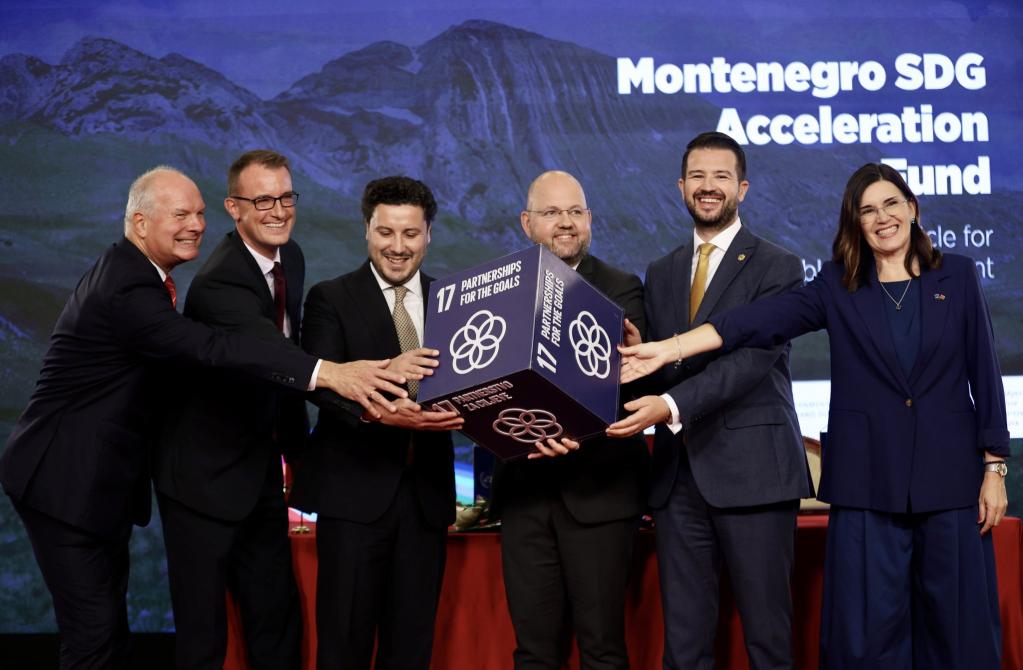
Story
26 September 2023
Montenegro: Failure to ensure judicial independence hindering access to justice, says UN expert
Podgorica, 26 September 2023
The failure to elect the seventh member of the Constitutional Court, the Supreme State Prosecutor and new lay members of the judicial council has put plans for judicial reform at risk in Montenegro, a UN expert said today.
“The failure to ensure the independence and integrity of the judicial system in Montenegro is hindering access to justice for its citizens,” said Margaret Satterthwaite, UN Special Rapporteur on the independence of judges and lawyers in a statement at end of an official visit to the country.
Satterthwaite said Montenegro’s Parliament had failed, on multiple occasions, to elect the seventh member of the Constitutional Court, the Supreme State Prosecutor, and new lay members of the Judicial Council.
“As a result, strategic leadership in these institutions is lacking, and planning and action for reform of the system is not possible. Members of Parliament must put the interests of their country above politics, and ensure these appointments take place without any further delay,” the expert said.
During her visit, Satterthwaite met with judges and prosecutors who reported working in conditions that were manifestly underfunded. Buildings were old, too small, and in a poor state of repair. There was insufficient office space, creating security risks for judges and prosecutors and IT and digitalisation was severely lacking, the Special Rapporteur found.
“During my visits to courts, I was shocked to see and hear about inadequate facilities for storage of archives and evidence, including firearms and drugs,” the expert said.
Satterthwaite said that while various governments had outlined plans for new court buildings over the years, the plans had not resulted in concrete improvements.
She called for additional resources to be provided and decisions on allocation taken with the strictest respect for the principle of judicial and prosecutorial independence.
The Special Rapporteur met many organisations that described being repeatedly excluded, overlooked, or mistreated by the system. Groups representing persons with disabilities, women survivors of intimate partner and family violence, Roma, LGBT persons and others spoke of excessive delays, insensitive or uninformed judges and prosecutors, and a lack of political will to make progress.
Satterthwaite said she recognised the energy and commitment of individuals she met in every part of the judicial system and civil society, who were sincerely working, in good faith, to provide justice and serve their country.
“I salute their efforts and stand ready to offer my assistance and support. I encourage all others in Montenegro and the broader international community to do the same,” the expert said.
She noted that while many of the laws and systems necessary to ensure independence, integrity and quality justice services were now in place in Montenegro, implementation remains deficient.
“If Montenegro cannot, or will not, take steps to ensure the independent, impartial and competent functioning of the judicial system, then a radical accountability measure, such as vetting, must be considered,” Satterthwaite said.
The Special Rapporteur will present a comprehensive report containing her findings and recommendations to the Human Rights Council in Geneva in June 2024.
ENDS
*The expert: Ms. Margaret Satterthwaite, Special Rapporteur on the independence of judges and lawyers. She was appointed as United Nations Special Rapporteur on the independence of judges and lawyers by the Human Rights Council in October 2022. Professor Satterthwaite is an international human rights scholar and practitioner with decades of experience in the field. She is a Professor of Clinical Law at New York University School of Law.
The Experts are part of what is known as the Special Procedures of the Human Rights Council. Special Procedures, the largest body of independent experts in the UN Human Rights system, is the general name of the Council’s independent fact-finding and monitoring mechanisms that address either specific country situations or thematic issues in all parts of the world. Special Procedures experts work on a voluntary basis; they are not UN staff and do not receive a salary for their work. They are independent of any government or organisation and serve in their individual capacity.
UN Human Rights, Country Page - Montenegro
For further information and media requests, please to hrc-sr-independencejl@un.org
For media inquiries regarding other UN independent experts, please contact Maya Derouaz (maya.derouaz@un.org) or Dharisha Indraguptha (dharisha.indraguptha@un.org)
Follow news related to the UN's independent human rights experts on Twitter @UN_SPExperts.
Concerned about the world we live in?
Then STAND UP for someone's rights today.
#Standup4humanrights
and visit the web page at http://www.standup4humanrights.org
Then STAND UP for someone's rights today.
#Standup4humanrights
and visit the web page at http://www.standup4humanrights.org
1 of 5
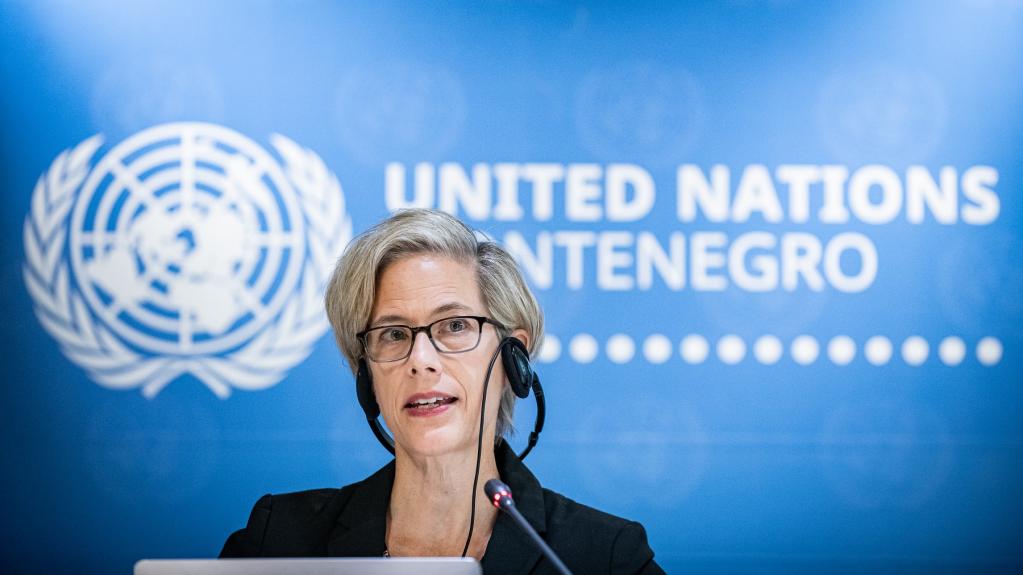
Story
20 June 2023
Words can be weapons. #NoToHate
Podgorica, 19 June 2023
Widespread hate speech among young people, its root causes and consequences were at the centre of a dialogue with young people organized by the UN team in Montenegro organised with drama studio “Prazan prostor (Empty Space)” to mark the International Day for Countering Hate Speech, 18 June, in Podgoric’s Dodest theatre.
The event gathered around 60 young people of different ages, different segments of society, from groups that often face hate speech, and representatives of the Protector for Human Rights and Freedoms and of international partners - the Council of Europe and the Organization for Security and Cooperation in Europe.
“Fighting hate speech is critically important for the UN. It is, as the Secretary-General has said, a toxic and destructive phenomenon. It goes against the very fundamental promises of the Universal Declaration of Human Rights, whose 75th anniversary we commemorate this year, and which remains as relevant today as it was then,” said Anjet Lanting, Human Rights Adviser in the UN team in Montenegro.
In a dynamic and open discussion, young people agreed that hate speech is omnipresent in their communities, pointing out that the response of society is not nearly sufficient.
The dialogue saw an exchange of experiences, touching testimonies, and concrete examples faced by young people, who identified some of the root causes and key drivers of hate speech. Patriarchal stereotypes, unregulated social media and the lack of prioritizing this problem were just some of the causes mentioned in discussion.
“Hate speech is used at every step and every day, on any possible ground – gender, sexual orientation, nationality, political affiliation, wealth status, popularity in the group… all of these,” said 17-years old Asmir, pointing that at times people justify hate speech by referring to the freedom of speech.
The dialogue with young people was inspired by young actors’ short performances of real-life situations and the short movie “Love and Violence”. The movie depicts a play by young actors of real-life situations and of gender-based hate speech and violence experienced by adolescents. The play is performed in the so-called ‘forum theatre’ – an interactive format with interruptions by moderators at critical moments to engage the audience in discussion.
“What we saw in the movie is very realistic, something that we witness or experience almost on daily basis,” said 12-year-old Iva, noting that hate speech is too often ignored or covered up.
Facilitators from drama studio “Prazan prostor” Marija and Mirko, who have vast experience in facilitating dialogues on this topic, steered the discussion towards helping the young audience to understand the nature of hate speech and to getting them to share their views.
“It’s always fascinating but at the same time shocking when young people unlock their experiences and their attitudes,” said Marija emphasizing that society has an unacceptable level of tolerance towards hate speech and that hate speech these days seems to have become normalized.
“What we heard today is hard hitting, uncomfortable, but it was clear: hate speech and violence in the home, in schools, in media and in society are very real. Young people shared touching experiences, but also important ideas of what they can and will do themselves, and what parents, teachers and leaders should do to stop hate speech and violence,” concluded Anjet Lanting.
The dialogue with young people on hate speech was organized within the initiative to mark the 75th anniversary of Universal Human Rights Declaration - #HR75. The UN Human Rights Office funded the event.
Photo Gallery
1 of 5
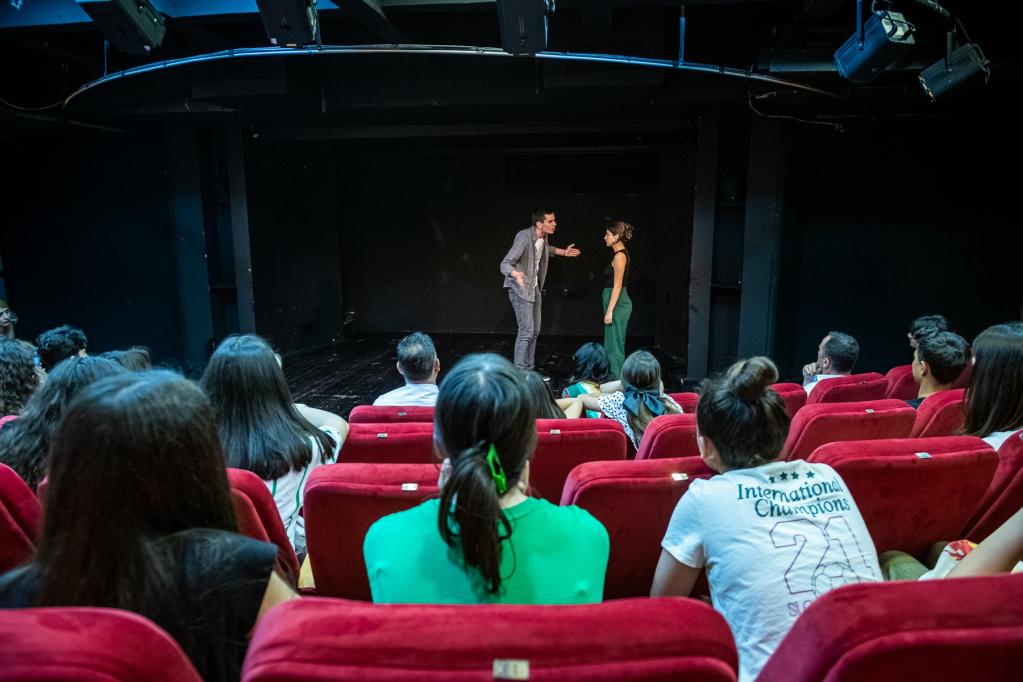
Publication
01 July 2022
United Nations Sustainable Development Cooperation Framework Montenegro 2023-2027
Responding to national priorities, the UNSDCF 2023-2027 was developed as a joint commitment by the United Nations Country Team (UNCT) to accelerate progress towards the 2030 agenda and EU accession.
1 of 5
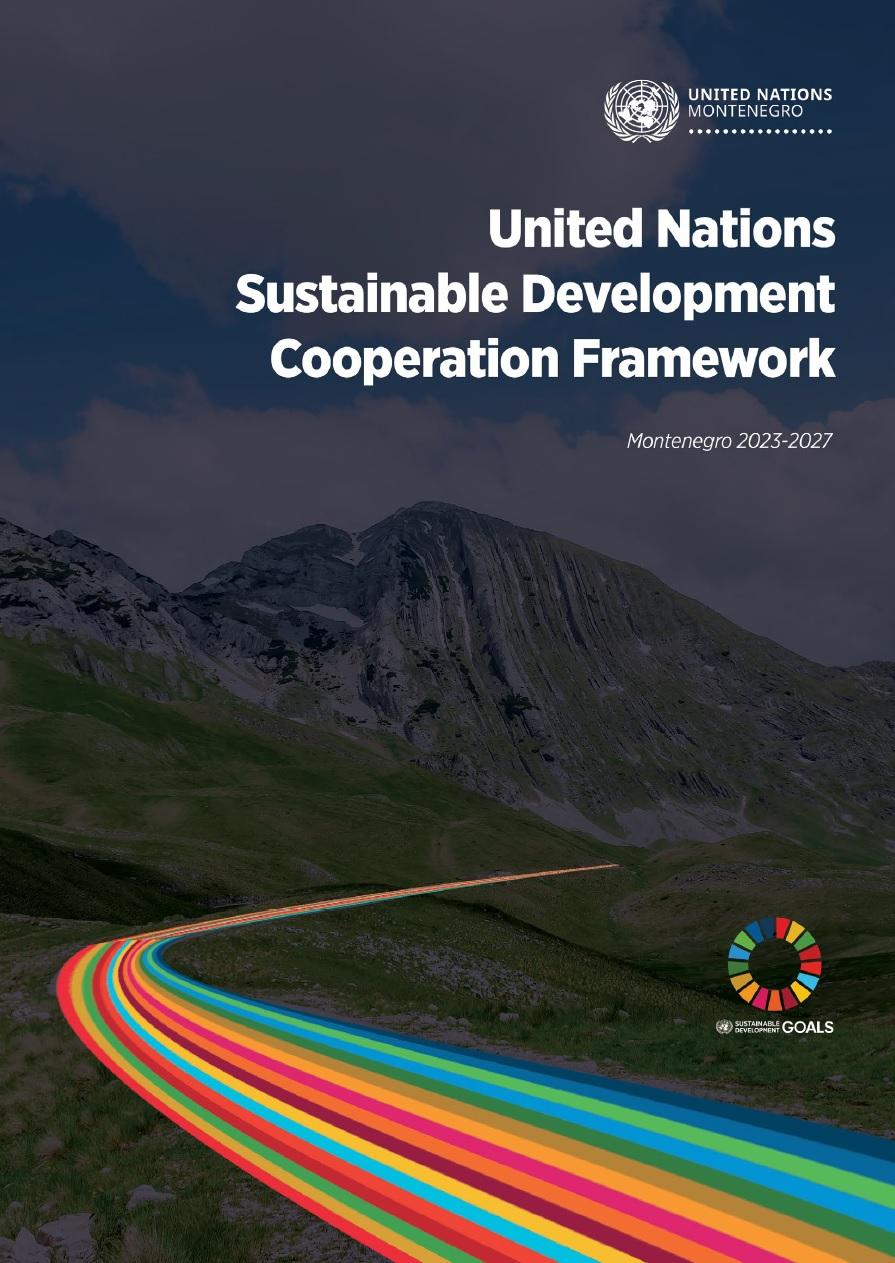
Story
08 March 2024
Invest In Women: Accelerate Progress
The fight for women’s rights over the past fifty years is a story of progress. Women and girls have demolished barriers, dismantled stereotypes and driven progress towards a more just and equal world. Women’s rights were finally recognised as fundamental and universal human rights. Hundreds of millions more girls are in classrooms around the world. And pioneering leaders have smashed glass ceilings across the globe. But progress is under threat. And full equality remains light years away. Billions of women and girls face marginalization, injustice and discrimination, as millennia of male domination continue to shape societies. The persistent epidemic of gender-based violence disgraces humanity. Over four million girls are estimated to be at risk of female genital mutilation each year. Discrimination against women and girls remains perfectly legal in much of the world. In some places, that makes it difficult for women to own property, in others, it allows men to rape their wives with impunity.Meanwhile, global crises are hitting women and girls hardest. Wherever there’s conflict, climate disaster, poverty or hunger, women and girls suffer most. In every region of the world, more women than men go hungry. In both developed and developing countries, a backlash against women’s rights, including their sexual and reproductive rights, is stalling and even reversing progress. New technologies – which have such potential to dismantle inequalities – too often make matters worse. That can be because of unequal access, algorithms with baked-in bias, or misogynistic violence – from deep fakes to targeted harassment of specific women. At our current speed, full legal equality for women is some 300 years away; so is the end of child marriage. This rate of change is frankly insulting. Half of humanity can’t wait centuries for their rights. We need equality now. That means accelerating the pace of progress. And that relies on political ambition, and on investment – the theme of this year’s International Women’s Day. We need public and private investment in programmes to end violence against women, ensure decent work, and drive women’s inclusion and leadership in digital technologies, peacebuilding, climate action, and across all sectors of the economy. We must also urgently support women’s rights organizations fighting against stereotypes, battling to make women’s and girls’ voices heard, and challenging traditions and cultural norms. Currently they receive a paltry 0.1% of international development spending. That must change. Investment may sound far removed from women’s everyday lives. But it takes investment to give schoolgirls the same opportunities as schoolboys. It takes investment to provide digital education and develop skills. It takes investment to provide the childcare that enables caregivers, who are mainly mothers, to do paid work outside the home. And it takes investment to build inclusive communities and societies with the full participation of women and girls of all backgrounds.Putting money behind equality is the right thing to do, but it also makes financial sense. Supporting women to enter formal labour markets grows economies, boosts tax revenues and expands opportunities for all. Securing the investment we need in women and girls requires three things. First, increasing the availability of affordable, long-term finance for sustainable development, and tackling the debt crisis strangling many developing economies. Otherwise, countries simply won’t have the funds to invest in women and girls. We need immediate action to provide breathing space for countries with unbearable debt repayments looming, and to encourage multilateral development banks to leverage far more private finance at affordable costs. Over the long term, we must reform the international financial architecture and make it far more responsive to the needs of developing countries.Second, countries must prioritise equality for women and girls – recognising that equality is not only a matter of rights but the bedrock of peaceful, prosperous societies. That means governments actively addressing discrimination, spending on programmes to support women and girls, and ensuring policies, budgets and investments respond to their needs. Third, we need to increase the number of women in leadership positions. Having women in positions of power can help to drive investment in policies and programmes that respond to women and girls’ realities. I am particularly proud that since early in my tenure – and for the first time in history – we have equal numbers of women and men in senior management across the entire United Nations system. Equality is overdue. Ending the patriarchy requires money on the table – it’s time to cough up.
1 of 5
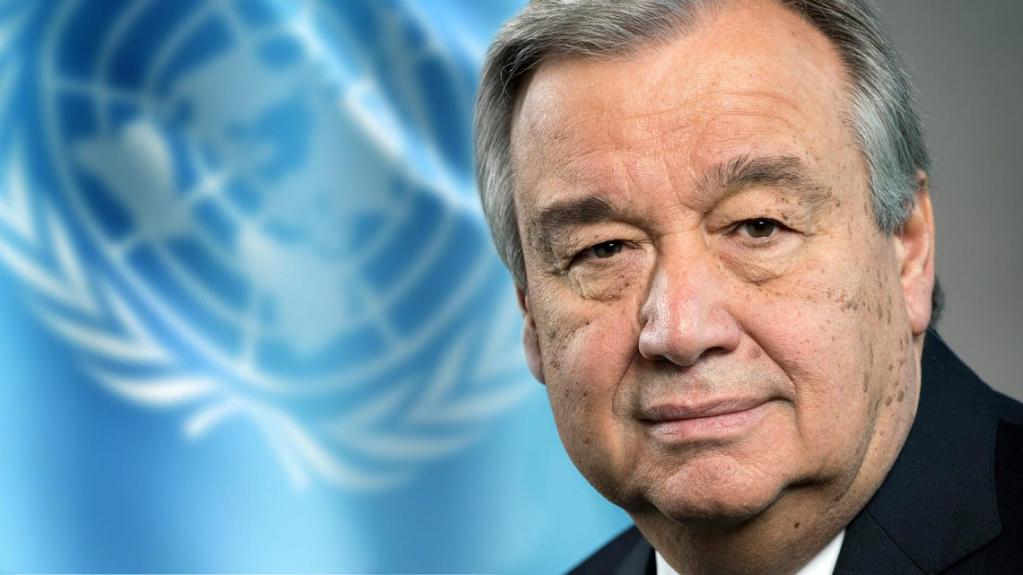
Story
22 March 2024
Joining forces for the 21st century schools
Podgorica, 8 March 2024For the digital revolution to happen in schools, we need to provide teachers with training in digital pedagogy and equip classrooms with new technologies, which will enable children to acquire digital skills. This was the key message from today's presentation of the "Digital, Inclusive and Transformative: Quality Education for All" – a joint UN initiative presented by the heads of the Ministry of Education, Science and Innovation, UNICEF, UNESCO, ILO and the UN.“This initiative aims to address the challenges brought by the digital revolution by creating opportunities for over six thousand girls and boys in the poorest, northern region of Montenegro to develop digital skills in schools every day. Better quality education for these children will bring them better jobs in the 21st century and help them break the cycle of poverty,” said Juan Santander, UNICEF Representative to MontenegroMinister of Education, Science, and Innovation Andjela Jaksic-Stojanovic stressed that the digital environment has become a natural environment for children and young people and that it is the task of the Ministry to ensure that schools become environments that strongly support the development of digital and other related competencies aligned with the goals of education and upbringing.“Without sufficient human capacities in the field of information and communication technologies, we cannot implement the digital revolution neither in the educational system nor in other areas, which leads us to the conclusion that the education system has a key role in the process of digital transformation. In this regard, in addition to providing schools with computer equipment, we will strive to intensively work on creating digital content that will improve the educational process and provide schools with enough resources for the modernisation of teaching and work of schools,” stated Anđela Jaksic-Stojanovic, Minister of Education, Science, and Innovation.According to Acting UN Resident Coordinator in Montenegro Vladimir Gjorgjiev, joint UN initiatives enable merging comparative advantages of different of UN agencies for providing coordinated technical and expert support to the Government in achieving systemic results."This initiative is funded by the Montenegro SDG Acceleration Fund, which is designed to consolidate donor funds and direct them towards development initiatives, paying special attention to the most vulnerable groups. Nothing illustrates the justification for the existence of the Fund as clearly as initiatives like this one – a project with a clear vision of supporting the country that leads to sustainable progress in communities", Gjorgjiev said, thanking the partners who have supported the Fund so far – the European Union and the governments of Montenegro, Switzerland, Austria, Luxembourg and Ireland.Sinisa Šešum, Head of the UNESCO Office in Sarajevo, emphasised that from UNESCO's perspective, quality and inclusive education is the cornerstone of social progress, and its integration with digital technologies is essential for promoting equitable and sustainable development. "This is also our common responsibility for future generations," Sesum added. The ILO Skills and Employability Specialist, Alessandra Molz, said that in times of multiple, rapid changes, this organisation defines education and skills as the most important means for individuals to navigate through digital transformation and for society to create a human-centred future of work.The development of digital teaching materials, the training of teachers and ICT coordinators, equipping and launching EdTech hubs, and organising digital summer camps for pupils are some of the activities that will be implemented within this two-year initiative. Digital content will be an integral part of the Digital School, which has already been developed by the Ministry of Education, Science and Innovation in collaboration with UNICEF.
1 of 5
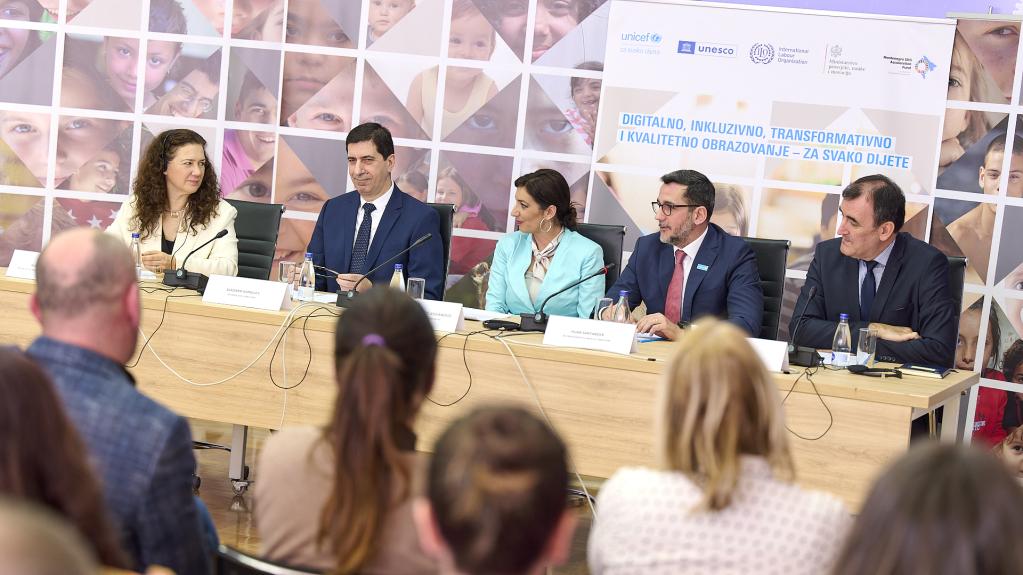
Story
18 December 2023
The application of the Convention on the Prevention and Punishment of the Crime of Genocide must be a 'living force in world society'
9 December 2023
„Large countries can defend themselves by arms; small countries need the protection of laws." Raphael Lemkin, the Polish lawyer who gave the crime of genocide its name, knew well what he was conveying with that note as he approched the diplomats at the United Nations ahead of the first regular session of the General Assembly in 1946. It was a notion which haunted him well before the Second World War – from the history books his mother would read him, to the following of the 1921 trial of young Armenian Soghomon Teilerian. Why, Lemkin asked his law school Professor, is there a name for the killing of one person, murder, but none for the killing of several people on the basis of their identity? The horrors of the Second World War, in which he lost fourty-nine members of his family, further refined his understanding that genocide – a crime without a name – was a coordinated plan with different actions aiming to annihilate individuals because they belonged to a certain identity group.
On 9 December 1948, the United Nations General Assembly adopted the Convention on the Prevention and Punishment of the Crime of Genocide - its first human rights treaty – by unanimous vote. It affirmed that genocide is a crime under international law, whether committed in times of peace or in times of war.
In just a few years, Lemkin named the nameless crime (using the prefix Greek genos-, meaning race or tribe, and the Latin suffix -cide, meaning killing), further defined it in hopes that it could be used at the Nuremberg trials, came to the United Nations to advocate for and contribute to the drafting of the Convention, and encouraged delegates to finally adopt this cornerstone text. Despite this recognition, Lemkin was not restful. “The nations which have ratified the Genocide Convention must now make this convention a living force in their societies by introducing appropriate domestic legislation which will carry in itself a great educational message of respect, love and compassion for human beings beyond their boundaries, irrespective of religion, nationality and race.”
Lemkin was on point and his call could not be more urgent today. As back then, ratifying the Convention constitutes a first step but it is far from being enough. Ratification must be followed by concrete implementation, including through domestication at national level through establishing national legal and policy tools aimed at identifying and addressing early warning signs and ensuring accountability when the crime has been committed.
We know today that the commission of genocide constitutes the end result of a process for which there are warning signs. We also know that whether or not States have ratified the Convention, they are bound by the principle that genocide is a crime under international law, and they have an obligation to prevent and punish it. In the 75 years since the adoption of the Convention, we have seen that when protection fails, it fails those who need it most. We are seeing this today, live-tweeted and streamed from more than a few places across the world. Yet, nothing is preordained, and no outcome is inevitable, and the call for prevention resonates today even more strongly when and where the risk of this crime is higher.
At this juncture time in history, while acknowledging the tremendous challenges which continue to hinder our collective ability to prevent and respond, we must also pause to reflect on the road that has been traveled. Since the moment of its adoption, the Convention has played a vital role in the development of international criminal law as we know it today. It defined the crime of genocide as the intended destruction, in whole or in part, of a racial, national, ethnic or religious group. The formal definition of the crime in the Convention has been subsequently included in the Rome Statute of the International Criminal Court in 1998, as well as in the statutes of other jurisdictions, such as the International Criminal Tribunals for the former Yugoslavia and for Rwanda, and the Extraordinary Chambers in Cambodia.
It has been ratified or acceded to by 153 States. Yet, 41 United Nations Member States have not done so.
As every 9 December, which is now a date internationally marked as the Day of Commemoration and Dignity of the Victims of the Crime of Genocide and of the Prevention of this Crime, this year we will continue honoring all those who have lost their lives to genocide, the “crime of crimes.” On the particular occasion of this 75th anniversary, with the legacy of the Convention at hand, we are urging all nations to renew their commitment to the Genocide Convention as a ‘living force’ in our societies.
There is much work ahead, for which the lessons learned from these past 75 years must be brought to light. We owe this to all the victims of this heinous crime as well as to those in peril as you read these lines. Today and tomorrow, as much - if not more - than 75 years ago.
1 of 5
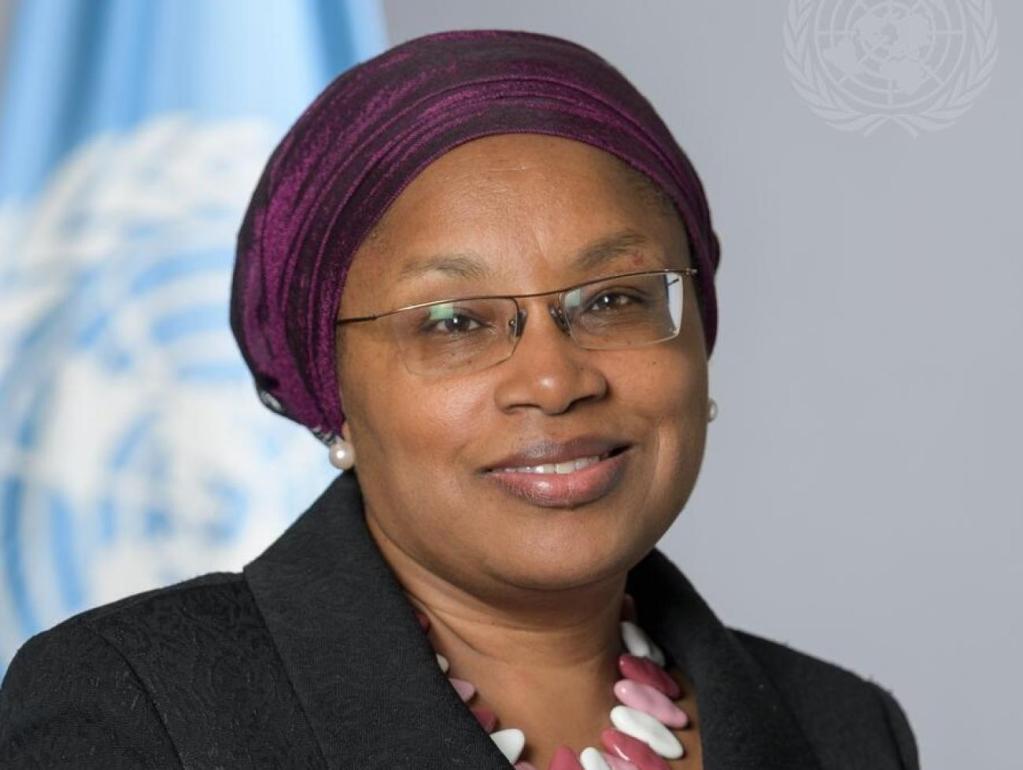
Story
15 December 2023
President Awards UN Resident Coordinator Lundberg with the Order of the Montenegrin Flag II Degree
Podgorica, 14 December 2023
The President of Montenegro, Jakov Milatović, presented the UN Resident Coordinator, Peter Lundberg, with the Order of the Montenegrin Flag II Degree during the end-of-year UN reception held at Podgorica's oldest high school, Gymnasium "Slobodan Škerović."
Reflecting on the challenges and triumphs of the past year, Milatović acknowledged the collective dedication toward fortifying society's success and aligning with the UN's sustainable development agenda.
"We've gathered to mark the end of the year, celebrate joint efforts and achievements, and bid farewell to a great friend of our country, Peter. The past year was filled with challenges but also opportunities for collective action and solidarity. We've worked diligently and with a shared goal: to make our society more successful, prosperous, and aligned with the UN's sustainable development agenda," said Milatović, emphasizing his commitment, from the first day in office, to strengthening ties and cooperation with the United Nations system.
Milatović highlighted the immense contribution and dedication of the UN Resident Coordinator, acknowledging the vision and effort Lundberg invests daily, not just in leadership but also in inspiring those around him.
"With great respect and gratitude, I want to present him with the Order of the Montenegrin Flag II Degree. This award is granted for special services to Montenegro, signifying our deep recognition of his outstanding contribution and continuous efforts in achieving the United Nations' goals in Montenegro. May this recognition serve as motivation, not only for him but for all of us, to continue working together and building a society where all citizens can live with dignity, equal rights, and opportunities. Dear Peter, thank you for making Montenegro a better place with your team through the Sustainable Development Agenda," Milatović concluded.
Receiving the award for his special services to Montenegro, the UN Resident Coordinator expressed deep and sincere gratitude, emphasizing that it symbolizes the firm and enduring partnership between the United Nations and the people of Montenegro.
"This valuable recognition is for all of us who work together to build a better future for Montenegro," said Lundberg, thanking the President for the ongoing partnership and cooperation in realizing the shared vision of a sustainable future for Montenegro.
This occasion marked the conclusion of Mr. Lundberg's three-year mandate in Montenegro. Until the appointment of his successor, the role of ad interim UN Resident Coordinator will be obtained by the IOM Chief of Mission Mr. Vladimir Gjorgjiev.
1 of 5
Story
11 December 2023
FAO: Montenegro prioritize better natural resource management and inclusive rural development
7 December 2023, Podgorica
The Government of Montenegro and the Food and Agriculture Organization of the United Nations (FAO) have agreed in the joint priorities for the country’s food and agriculture sector for the coming years.
According to this, they will work together to contribute to improved state and management of natural resources and to an innovative, competitive, gender-responsive, and inclusive economic development that is climate resilient and low-carbon, too.
This is the main vision of the FAO–Montenegro Country Programming Framework (CPF) 2023–2027, signed today by Nabil Gangi, Officer-in-Charge for the FAO Regional Office for Europe and Central Asia and Vladimir Joković, Minister of Agriculture, Forestry and Water Management in Podgorica. The agreement sets out the priority areas to guide the partnership between FAO and Montenegro, leveraging international best practices, global standards, and national and regional expertise.
“FAO will support sustainable, inclusive, and competitive economic development of Montenegro’s agrifood sector, including through sustainable natural resources management (in particular, sustainable forest management) and promotion of green and climate-resilient agricultural practices that reduce the economy’s impact on the environment,” said Nabil Gangi. “We are assisting the country in the path towards realizing its national commitments related to the global Sustainable Development Goals.”
The Country Programming Framework is derived from Montenegro’s United Nations Sustainable Development Cooperation Framework 2023–2027, taking into account other key national and international policy documents and strategies.
Agriculture in Montenegro
Agriculture forms a priority sector for Montenegro’s economy, contributing over 6 percent to the national gross domestic product and to the employment sector. Livestock breeding is the most important agriculture subsector in the country, especially for the rural population of the northern region, where opportunities to generate alternative incomes are limited. It is estimated that about 70 percent of the total income of the population living in rural areas is generated through agricultural activities. Agricultural production could be one of the key development resources of northern Montenegro which is not heavily dependent on the tourism sector.
Farmers require adequate support in improving farming conditions, adopting adequate technologies in milk hygiene and storage, and improving the feeding of livestock. Furthermore, animal diseases, especially zoonotic ones, can hamper the sector’s long-term competitiveness and sustainability.
Towards sustainable and inclusive development
FAO, in close collaboration with the Ministry, will work on increasing institutional and producer capacities to enhance productivity in the agrifood sector through digitalization, knowledge and innovation, improving the sustainability of agricultural holdings, ensuring the long-term security of the food supply and enhancing climate change adaptation and mitigation actions. Particular attention will be given to increasing the competitiveness of selected agrifood, aquaculture, commercial fisheries, and livestock value chains, where FAO already extends technical assistance. The focus will also be on improving farmers’ production efficiency through FAO’s proprietary approach of Farmer Field Schools and promoting the adoption of digital technologies in agriculture.
FAO will contribute to supporting rural communities’ equitable access to natural resources on which their livelihoods depend on, while also protecting and restoring ecosystems.
Specifically, FAO and the Government of Montenegro recognize and prioritize the importance of integrated water resources management for agrifood and aquatic food systems. Under the new Country Programming Framework, several interventions supporting sustainable fisheries and aquaculture will be implemented.
Forests represent one of the most important natural ecosystems and one of the determinants on which the sustainable development of Montenegro is based. Forests cover over 60 percent of the territory of Montenegro, which ranks it among the three most forested countries in Europe. In the coming years, FAO will work on enhancing national forestry policies and forest management models to address the issues of unrecorded cuttings, forest fires, and biodiversity conservation.
Translating the ‘leaving no one behind’ approach into actions, FAO puts gender and youth mainstreaming and poverty reduction at the heart of its interventions. The Organization is thus aiming to advance women’s economic empowerment, supporting rural women from underprivileged municipalities with the objective of removing some of the structural barriers.
1 of 5
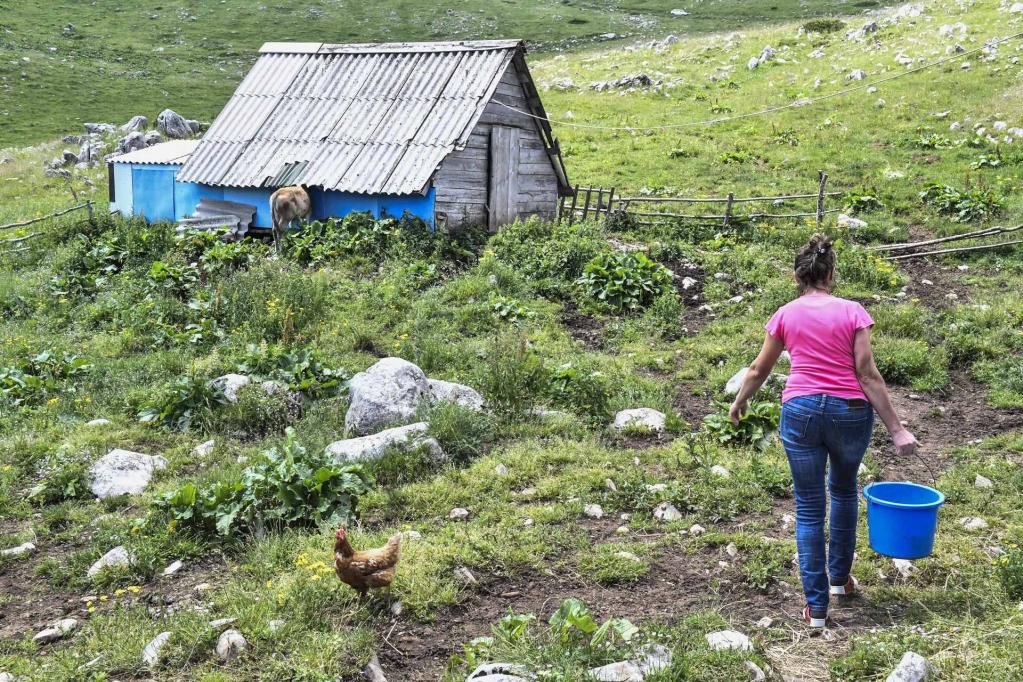
Press Release
18 September 2023
UN expert to visit Montenegro to assess the independence of justice system
GENEVA (18 September 2023) – The UN Special Rapporteur on the independence of judges and lawyers, Margaret Satterthwaite, will conduct her first official visit to Montenegro from 19 to 26 September 2023.
During her visit, Satterthwaite will assess the measures taken by the Government to ensure the independence of the judiciary and the free exercise of the legal profession. She will examine the ongoing reform process of the judiciary to assess its compliance with international human rights standards, such as the independence of the judiciary and the principle of separation of powers. She will also examine the issue of access to justice for all, seeking to understand the way ordinary people in Montenegro experience the judicial system.
The expert will meet Government officials and members of the Parliament, judges, prosecutors and lawyers. She will also meet representatives of civil society, academia, UN agencies, donors and the diplomatic community.
Satterthwaite will hold a press conference on Tuesday 26 September at 10:30 local time at the UN Eco House. Access is strictly limited to journalists.
The Special Rapporteur will present her report to the Human Rights Council in June 2024.
ENDS
*The expert: Ms. Margaret Satterthwaite, Special Rapporteur on the independence of judges and lawyers. She was appointed as United Nations Special Rapporteur on the independence of judges and lawyers by the Human Rights Council in October 2022. Professor Satterthwaite is an international human rights scholar and practitioner with decades of experience in the field. She is a Professor of Clinical Law at New York University School of Law.
The Experts are part of what is known as the Special Procedures of the Human Rights Council. Special Procedures, the largest body of independent experts in the UN Human Rights system, is the general name of the Council’s independent fact-finding and monitoring mechanisms that address either specific country situations or thematic issues in all parts of the world. Special Procedures experts work on a voluntary basis; they are not UN staff and do not receive a salary for their work. They are independent of any government or organisation and serve in their individual capacity.
UN Human Rights, Country Page - Montenegro
For further information and media requests, please to hrc-sr-independencejl@un.org
For media enquiries regarding other UN independent experts, please contact Maya Derouaz (maya.derouaz@un.org) or Dharisha Indraguptha (dharisha.indraguptha@un.org).
Follow news related to the UN's independent human rights experts on Twitter @UN_SPExperts.
Concerned about the world we live in?
Then STAND UP for someone's rights today.
#Standup4humanrights
and visit the web page at http://www.standup4humanrights.org
Then STAND UP for someone's rights today.
#Standup4humanrights
and visit the web page at http://www.standup4humanrights.org
1 of 5
Press Release
14 June 2023
Full commitment to further cooperation with the United Nations on SDGs achievement
Podgorica, 13 June 2023
The President of Montenegro, Jakov Milatović, received the UN Resident Coordinator in Montenegro, Peter Lundberg.
The topics of discussion were further streams of cooperation between Montenegro and the United Nations, the upcoming UN General Assembly and the Summit on Sustainable Development Goals, which will be held this fall at the UN headquarters in New York, USA.
"We continue our successful cooperation with thanks to the United Nations agencies for supporting the democratic and economic development of our country. The General Assembly and the Summit will be an opportunity for Montenegro to show that it is committed to the Sustainable Development Goals and that we are ready to work additionally on their further fulfillment," said President Milatović.
The UN Resident Coordinator, Peter Lundberg thanked Montenegro for the donation of one million euros to the Montenegro SDG Acceleration Fund, which is the largest single per capita contribution to such a financial mechanism in relation to the number of inhabitants.
He said that, as before, Montenegro will have full support of the United Nations in all areas of development, especially in the strategic areas of the Cooperation Framework for Sustainable Development 2023-2027.
"We believe that the issue of social cohesion, as one of your priorities but also an important segment of the work of the United Nations, will be properly addressed through the UN Secretary General’s Peace Building Fund" said Lundberg, highlighting that the UN system remains a reliable partner of the people of Montenegro in achieving national development priorities.
Two dignitaries also agreed to work on joint activities to mark the 75th anniversary of the adoption of the Universal Declaration of Human Rights.
1 of 5
Press Release
10 March 2023
UN Montenegro and governments of Montenegro and Switzerland signed a 2.5 million EUR contribution to the Montenegro SDG Acceleration Fund
Podgorica, 7 February 2023
The Prime Minister of Montenegro Dritan Abazović, the UN Resident Coordinator Peter Lundberg and the Ambassador of Switzerland to Montenegro Urs Schmid signed an agreement today on the allocation of 2,5 million EUR for the Montenegro SDG Acceleration Fund. The Fund is a new generation financial tool established by the UN team in the country, which seeks to pool donor funds that will be directed towards development initiatives.
The Government of Montenegro allocated EUR 1 million for the Montenegro SDG Acceleration Fund, while the Government of Switzerland supported this initiative with EUR 1.5 million. Previously, the contribution to the Fund was determined by the Government of Luxembourg.
"The idea and vision of this Government is to make Montenegro a white and green destination. It is not an easy job, because we have to change a lot, and we have to have sustainable projects. I am more than sure that this Fund will give us a chance to find a good project and that after its implementation we will have a much better situation in terms of sustainable development,“ said Montenegrin Prime Minister Dritan Abazović.
Montenegro's contribution to sustainable development through this funding modality is particularly significant from the perspective of the country's size and economy. Montenegro hereby invests €1.3 per capita in sustainable development through the Montenegro SDG Acceleration Fund, which is more than all countries in the region. This also stands as clear indicator of Montenegro's strategic orientation towards sustainable development and cooperation with the United Nations.
UN Resident Coordinator Peter Lundberg pointed out that the Fund has been designed as a powerful catalyst for accelerating SDGs implementation in the country.
"The Montenegro SDG Acceleration Fund is a common vision of accelerated achievement of Agenda 2030. Considering the enormous development potential, the Fund can be an important tool for country’s development and achievement of national priorities, primarely country's accession to the European Union," said Lundberg, adding that the Fund is the result of a true development partnership.
Urs Schmid, ambassador of Switzerland, which is currently the largest donor to the Fund, pointed out that bilateral relations between Switzerland and Montenegro are very dynamic and that Switzerland is among the five largest foreign investors in Montenegro with around 800 million euros invested since 2003.
"Switzerland's participation in the Montenegro SDG Acceleration Fund will further improve relations between our two countries and I believe that our contribution will encourage other countries and development partners to join this innovative financial mechanism and to contribute that way to acceleration of reforms in Montenegro," said Schmid.
By consolidating and directing funds towards targeted development interventions, the Fund will be catalyzing not only SDGs but also acceleration of Montenegro's accession to the EU, given the high level of alignment between the Agenda 2030 and the EU accession process.
The Fund is designed to support strategic initiatives in three priority areas of the UN Sustainable Development Cooperation Framework 2023-2027: 1) inclusive economic development and environmental sustainability, 2) human capital development, reducing vulnerability, social inclusion and 3) social cohesion, people-centred governance, rule of law and human rights.
1 of 5
Press Release
13 April 2023
Fighting hate speech is everyone's job
Podgorica, 8 december 2022
Dealing with hate speech was the central theme of the panel discussion "Silencing Hate" organized by the United Nations system ahead of International Human Rights Day, 10 December.
People who were targeted by hate speech because of who they are, what they do or because of the perception that they are different shared their experiences. Panelists and audience discussed possibille joint actions in facing the challenges that hate speech brings.
The UN Resident Coordinator in Montenegro Peter Lundberg, pointed out that Montenegro is experiencing an increase in hate speech and added that it is not the only country facing this problem.
“Unfortunately, we are witnessing the global growth of misinformation, fake news and divisive narratives that lead directly to discrimination, hate speech and even hate crimes. The scale and impact today, especially with social media as a global platform for spreading hate, is greater and growing faster than ever. This is why the United Nations adopted the Global Strategy and Action Plan on Hate Speech in 2019, within which we strive to, in cooperation with partners, take actions aimed at combating hate speech. Because the fight against hate speech is the job of all of us," said Lundberg, stating that fighting hate speech does not represent limiting freedom of expression in an arbitrary or illegal way, but preventing hatred from escalating into discrimination, hostility and violence.
The Minister of Human and Minority Rights, Fatmir Đeka, pointed out that Montenegro strives to maintain its European path and to improve respect for human rights as well as to persevere in strengthening tolerance and acceptance of diversity.
"Hate speech should be reduced every day, by turning to content which can contribute to our further education, general culture, raising awareness of essential things. By repeating what has been said, we give additional importance to negative streams.We need to continuously suppress negative phenomena in society. The catalysts of every change, good or bad, are we, ourselves," Đeka said.
The audience heard testimonies of panelists who were exposed to various forms of hate speech, among which were members of the Roma community, the LGBT community, persons with disabilities, women and others who were targeted by the hate speech.
"I'm afraid we're normalizing hate speech and that's what worries me a lot. Hate speech is, above all, humiliation and persecution of those who are different, and it is high time for this topic to be opened seriously," said Sabina Talović from Pljevlja, who was a victim of hate speech.
Human Rights Day is commemorated every year on 10 December 1948, when the UN General Assemblyadopted the Universal Declaration of Human Rights. Since then, the Universal Declaration of Human Rights has been the basis for a growing system that promotes and protects the rights of all people in the world.
1 of 5
Press Release
13 April 2023
Government and UN signed UN Sustainable Development Cooperation Framework 2023-2027
Podgorica, 20 July 2022
The Minister of Foreign Affairs of Montenegro Ranko Krivokapić and the UN Resident Coordinator Peter Lundberg signed today the United Nations Sustainable Development Cooperation Framework UNSDCF 2023-2027, to pave the way for UN-Montenegro collaboration in the next five years.
Minister Krivokapić said that the next five years are crucial for Montenegro's cooperation with the UN and the EU, and that it would be useful to turn two parallel roads into a single path, which will end in 2027 with membership in the European Union.
Montenegrin Foreign Minister pointed out that the main benefit of all engagements of Montenegro with the United Nations, as well as with Euro-Atlantic partners, is full understanding.
“We feel like a country that has full understanding on its path to European integration, dignified membership in the UN, as well as belonging to the Euro-Atlantic community,” - said Krivokapić, emphasizing that this understanding is no less important than the multiple assistance we receive in areas that modernize our society, adding that the number of countries and agencies that support Montenegro is beyond any expectation.
Emphasizing that social inclusion is the way how small communities function and exist, Krivokapić said that they survive on solidarity and connection, which is not only economic and social, but also has an emotional note that gives the full feeling of living in one society.
Speaking about the parallel process of European integration, he said that there is no more time to delay, and that every wind is good for a ship that knows where it is going, while there is no good wind for a ship that does not know where it is going.
“Our path is the EU, but that path cannot be limitless, that path must have its own time frames set for Montenegro, through constant reforms that are achievable in the next five-year period, but also shorter than that,” said Krivokapić.
The UN Resident Coordinator in Montenegro Peter Lundberg said that the UN Sustainable Development Cooperation Framework, jointly adopted today, represents the foundations of cooperation between Montenegro and the United Nations in the next five years.
“This common vision of development, based on jointly identified development priorities, will help accelerate our journey towards the Agenda 2030, but also the EU accession of Montenegro," said Lundberg, emphasizing that one of major drivers of the process will be the Montenegro Acceleration Fund, a new generation of pooled funds to help solve development challenges.
Before signing the UNSDCF, the Government and UN team held the Joint Country Steering Committee meeting, to review implementation of the Integrated UN Programme (UNDAF) 2017-2022, including joint results in 2021 and plans for 2022.
1 of 5
Latest Resources
1 / 11
Resources
15 January 2024
Resources
24 March 2023
Resources
01 July 2022
1 / 11

